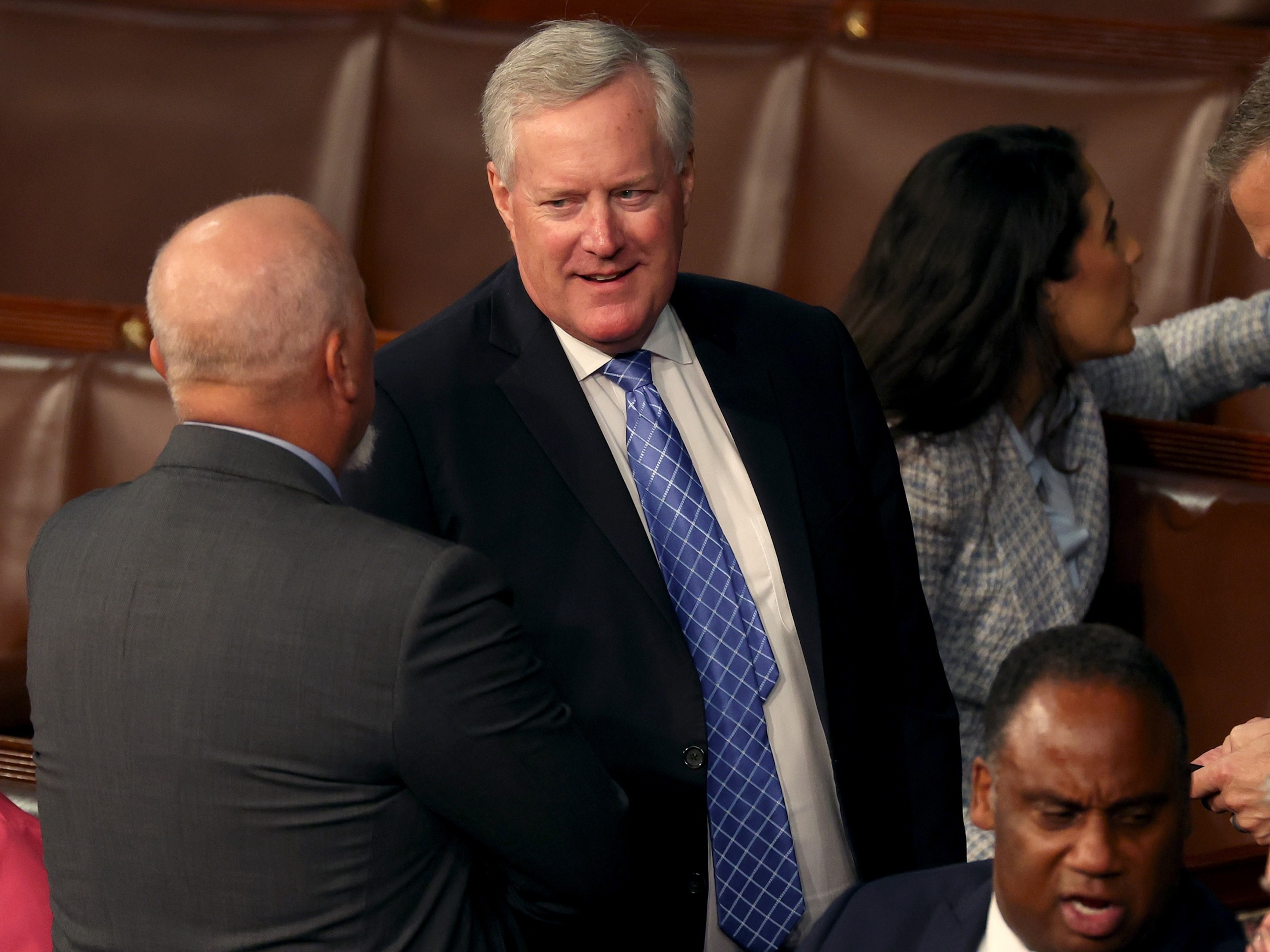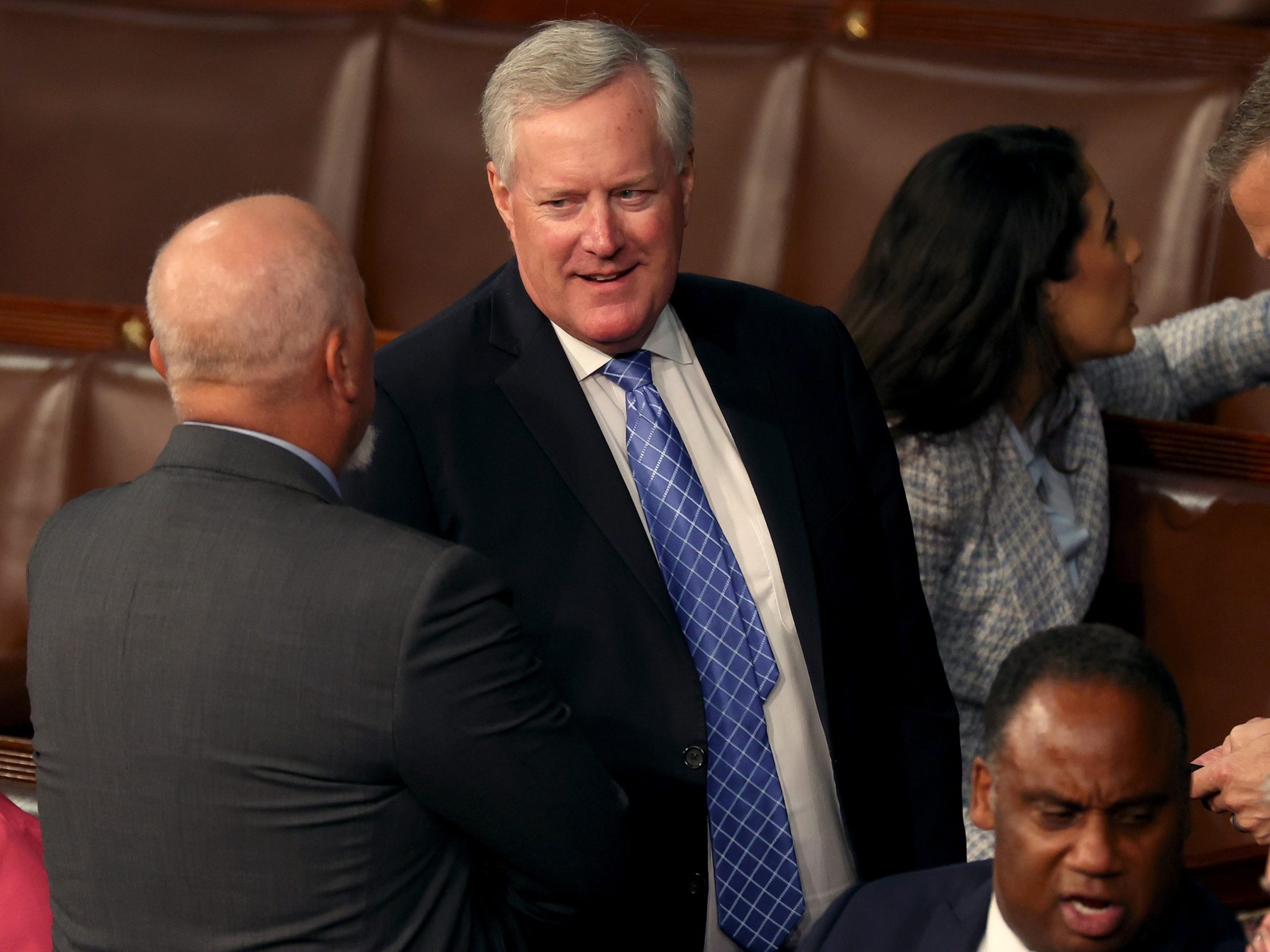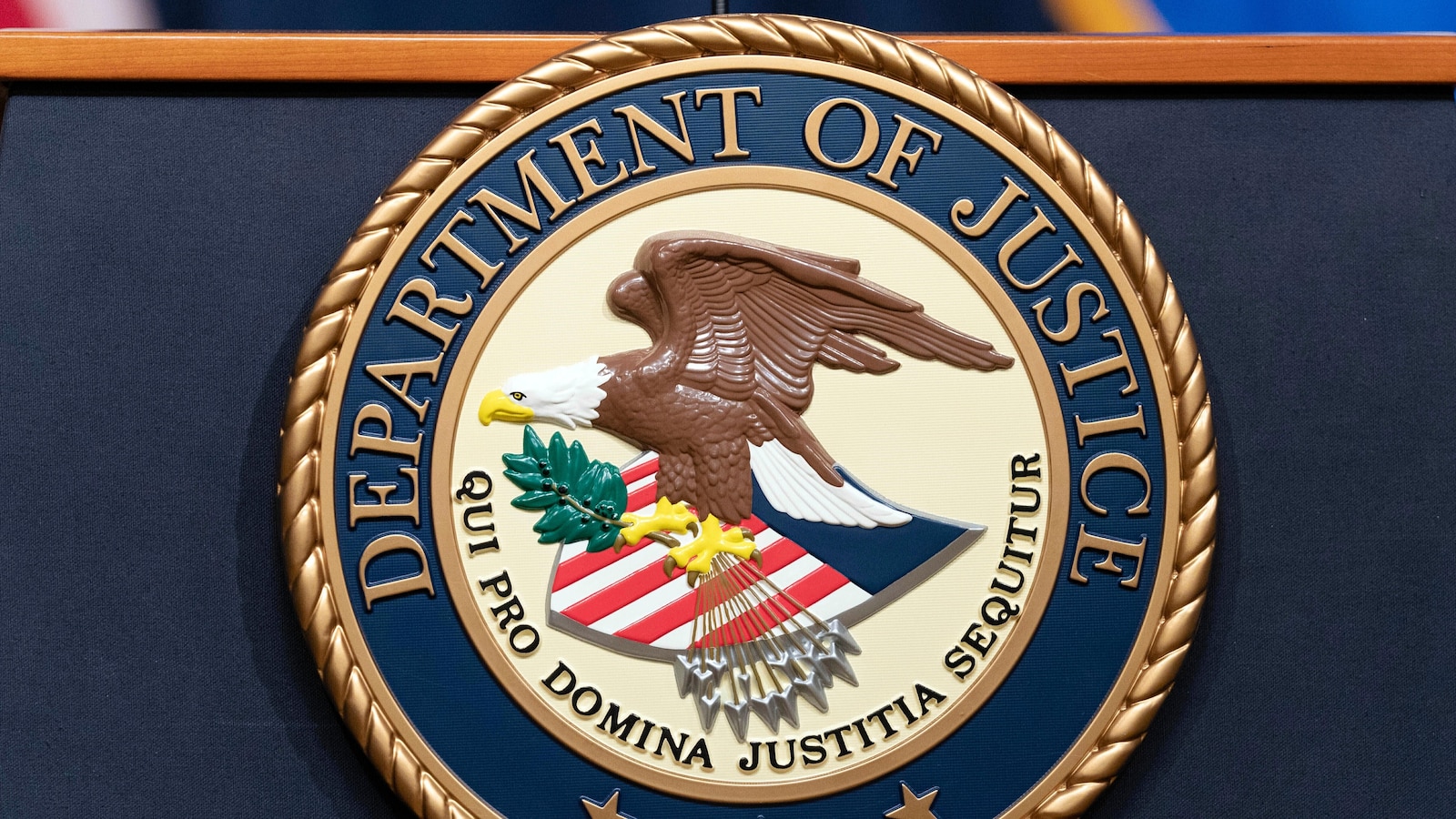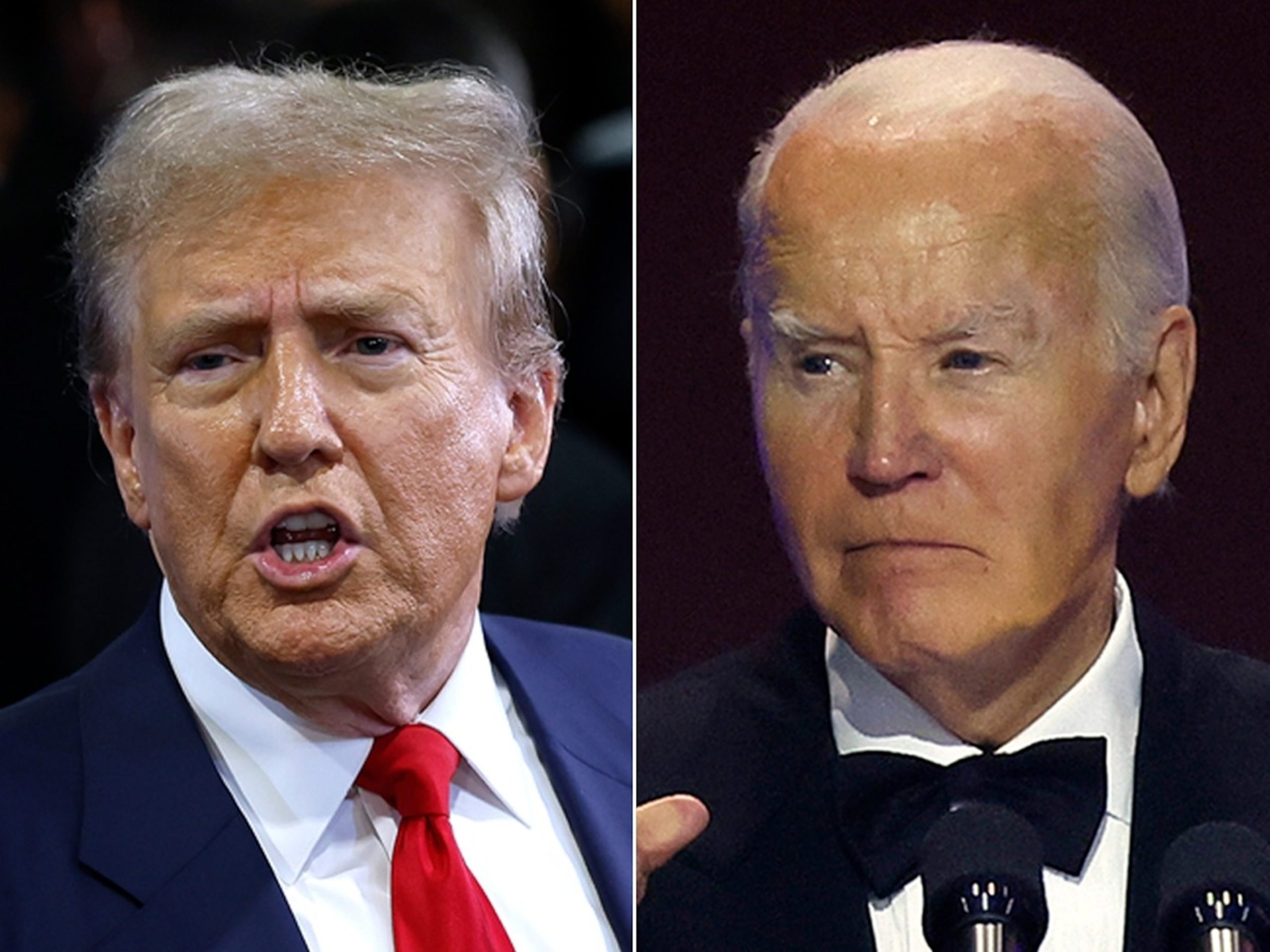Mark Meadows, the one-time chief of staff to former President Donald Trump, is continuing his monthslong effort to move the Fulton County criminal case against him into federal court, asking the Supreme Court in a new appeal to intervene on a lower court’s ruling they claim was “dangerously” wrong.
In a filing, dated Friday, Meadows’ attorneys say the lower court erred when it rejected Meadows’ request to move his case out of state court and into federal court, in part by pointing to the court’s recent landmark ruling granting Trump some immunity for official acts
“Just as immunity protection for former officers is critical to ensuring that current and future officers are not deterred from enthusiastic service, so too is the promise of a federal forum in which to litigate that defense,” the 47-page filing states.
Meadows for months has sought to move his case into federal court based on a law that calls for the removal of criminal proceedings when someone is charged for actions they allegedly took as a federal official acting “under color” of their office.

Mark Meadows, former chief of staff to former US president Donald Trump, arrives for the Israeli Prime Minister Benjamin Netanyahu address to a joint meeting of Congress in the chamber of the House of Representatives at the Capitol, July 24, 2024.
Justin Sullivan/Getty Images
Both a lower court and appeals court have rejected that claim, with one judge writing that Meadows’ actions charged in the indictment “were taken on behalf of the Trump campaign” and not his official duties.
Now, Meadows has appealed the issue up to the Supreme Court, arguing the appeal court’s ruling that the statute does not apply to former officers “defies statutory text, context, history, and common sense.”
“The decision [of the lower court] is not just wrong, but dangerously so,” Meadows’ attorneys continued, again referencing Trump’s immunity ruling. “The Court should grant review, or at the very least vacate and remand in light of Trump.”
The Fulton County election interference case against Trump and 14 others is largely on pause pending an appeal of the disqualification issue. An appeals court has scheduled oral arguments for December.
Meadows has pleaded not guilty.
The historic Supreme Court decision on presidential immunity referenced by Meadows’ lawyers outlined the boundaries of presidential power, making clear for the first time that former presidents are entitled to absolute immunity for “core” official acts but have no immunity for “unofficial” acts.
Former White House Chief of Staff Mark Meadows has recently made headlines by requesting Supreme Court intervention in a case involving Fulton County, Georgia. The case revolves around a lawsuit filed against Meadows by a group of voters in the county, alleging that he played a role in efforts to overturn the 2020 presidential election results.
Meadows’ request for Supreme Court intervention is based on a recent ruling by a federal judge that former President Donald Trump is immune from civil lawsuits related to his actions while in office. Meadows argues that this ruling should also apply to him, as he was acting on behalf of the president at the time of the alleged actions.
The lawsuit against Meadows alleges that he conspired with Trump and others to pressure state officials to overturn the election results in Georgia. The plaintiffs claim that Meadows’ actions violated their constitutional rights and undermined the integrity of the electoral process.
Meadows’ legal team argues that the lawsuit is an attempt to hold him personally responsible for actions taken in his official capacity as White House Chief of Staff. They contend that immunity should extend to Meadows in this case, just as it does to Trump.
The Supreme Court has not yet indicated whether it will hear Meadows’ request for intervention. If the court does decide to take up the case, it could have far-reaching implications for the ability of government officials to be held accountable for their actions while in office.
Critics of Meadows’ request argue that immunity should not shield government officials from accountability for actions that violate the law or the Constitution. They contend that allowing officials to escape legal consequences for such actions sets a dangerous precedent and undermines the rule of law.
Regardless of the outcome of Meadows’ request for Supreme Court intervention, the case highlights the ongoing legal battles surrounding the 2020 election and the efforts to overturn its results. It also raises important questions about the limits of immunity for government officials and the balance between accountability and executive authority.



